By Rich Larson, News Director
Last week the state GOP caucus released their budget proposal for the coming biennium, and Governor Tim Walz released a revised proposal scaling

back the tax increases he had initially proposed. Representative Todd Lippert said that, while he’s not privy to all the details of the DFL budget proposal, there are fundamental things in which the party believes, and those things will be reflected in their budget.
The Representative said that he expects there will be money allocated for schools, affordable housing, and a continued funding of aid for families and small businesses to get through the Covid-19 pandemic. Lippert has said before that a budget is a “moral document” and he expects that his party’s proposal will be one that looks after all Minnesotans.
“Our caucus is a diverse one. We come from a variety of backgrounds all over the state. We are the statewide party. And we’re going to see a budget that is really focused on meeting the needs of Minnesotans across the state and making sure we’re not leaving people behind.”
While the Republican proposal and the Governor’s revised proposal were surprisingly similar in many respects, it is expected that the DFL proposal will include several of the tax increases the governor has dropped. State Republicans have said they will not accept any tax increases in the next budget.
The DFL proposal is expected tomorrow.
Jeff Johnson’s full conversation with Representative Todd Lippert can be heard here.
City Council supports passenger rail study

On Tuesday, the Northfield City Council passed a resolution supporting the study of a regional passenger train service that would connect South Central Minnesota to the Twin Cities on an existing rail line through Northfield.
Representative Todd Lippert has authored a bill that would set aside $500,000 to study the feasibility of the rail line that would stretch from the Twin Cities down through Albert Lea and potentially into Iowa and points further south.
Passenger Rail has been a topic of conversation for many years in Northfield and has seen widespread community support. Advocates of the line point to the ease it would create for commuters to the Twin Cities in both affordability and reliability. There would be an upgraded infrastructure component to adding passenger rail, and as Councilor Suzie Nakasian, who has done quite a bit of work on passenger rail, pointed out, passenger trains tend to be quieter. And while there are concerns with the use of tracks that are already heavily used by freight trains, Nakasian said that freight companies like Union Pacific, the company that owns the tracks that run through Northfield, are increasingly open to allowing passenger rail service, as it almost always includes infrastructure upgrade help from the state government.
Nakasian also said there could be a benefit to students in Minnesota as well.
“The proposed statewide network our corridor and the other corridors – Duluth, the Northstar line, etc. – taken together, they combine a network, a corridor connection to every private college in the state, and four of the six main campuses of the University of Minnesota. So, I’m especially excited about that aspect.”
Representative Lippert said that his bill will receive a hearing this week.
Underdahl says NH&C weathered 2020 in ‘pretty good shape’
And after what could have been, and for many health systems was, a disastrous year, Northfield Hospital & Clinics President and CEO Steve Underdahl said that his organization finished 2020 in pretty good shape.
said that his organization finished 2020 in pretty good shape.
Underdahl presented the 2020 audit to the hospital board last week, and said that, while NH&C faced a number of challenges last year, they were able to find the resources to navigate those waters. The Covid-19 pandemic, of course, caused a shutdown of many hospital services and even after things were allowed to re-open many patients still stayed away from receiving medical services due to fears of the Coronavirus. It was, he said “kind of nail biting all year.”
NH&C, however, did receive aid from the CARES Act that helped keep things afloat. Moreover, he said, the organization has had leadership over the years that prepared them for a situation like a global pandemic.
“Over the years, there has been a tradition of being financially conservative and saving their money. The really helpful thing for us is that we’ve created reserves over the years so that when something bad and weird happens, we have the ability to sort of ride those storms.”
Underdahl said that while he does not expect that 2021 will be as dramatic as 2020, there are still several challenges in place, and the first six months of the year will call for the same kinds of money conservation tactics.
Jeff Johnson’s full conversation with Steve Underdahl can be heard here.

